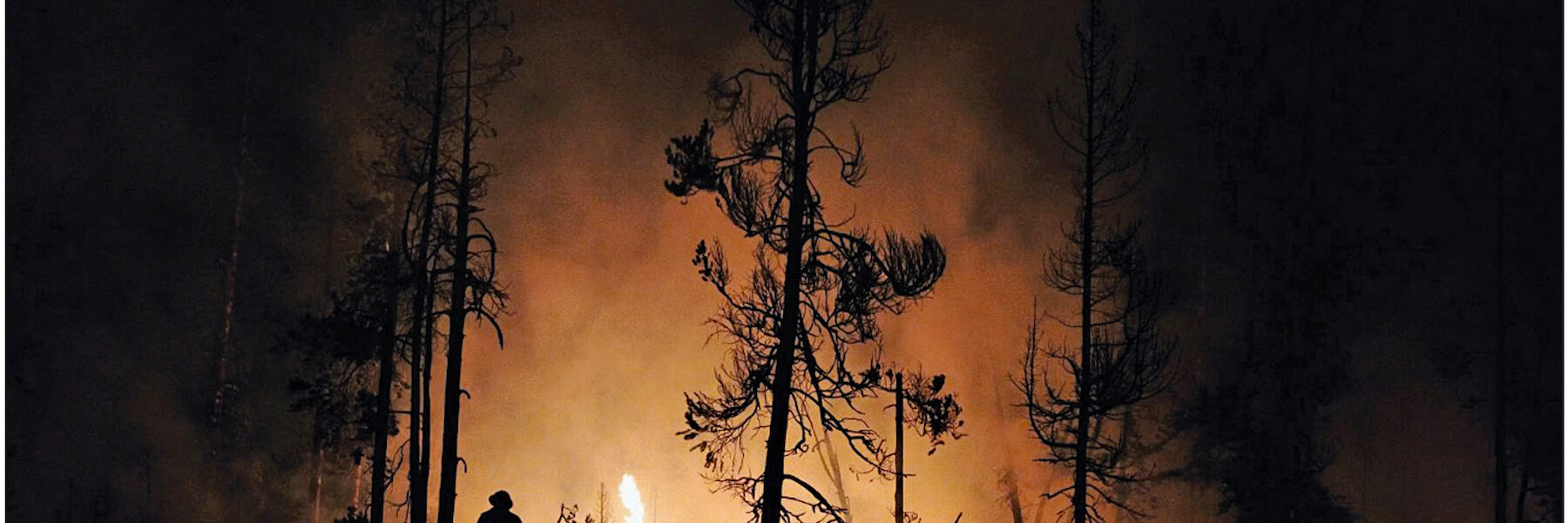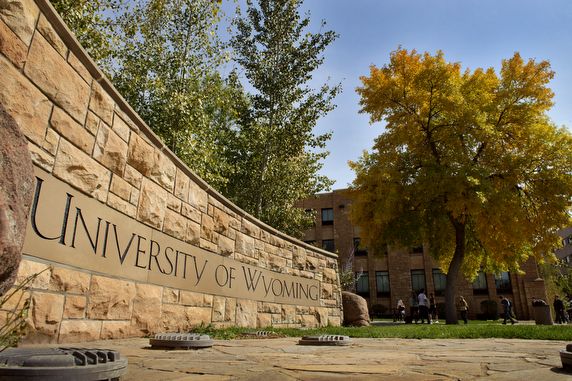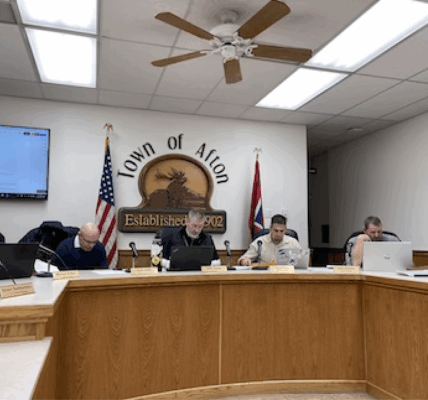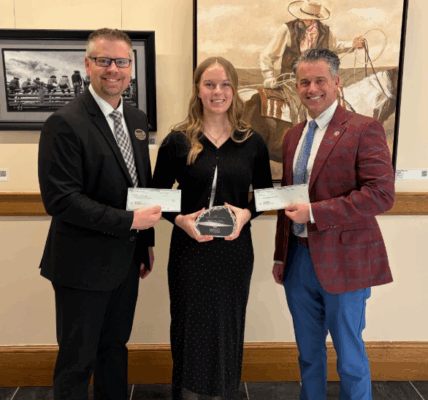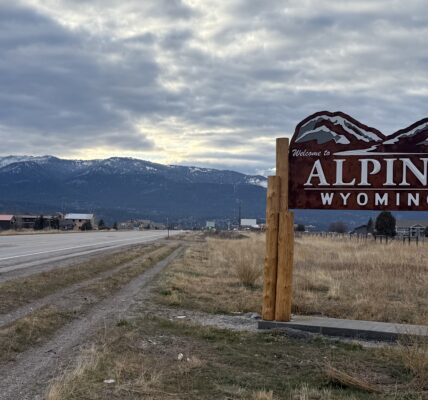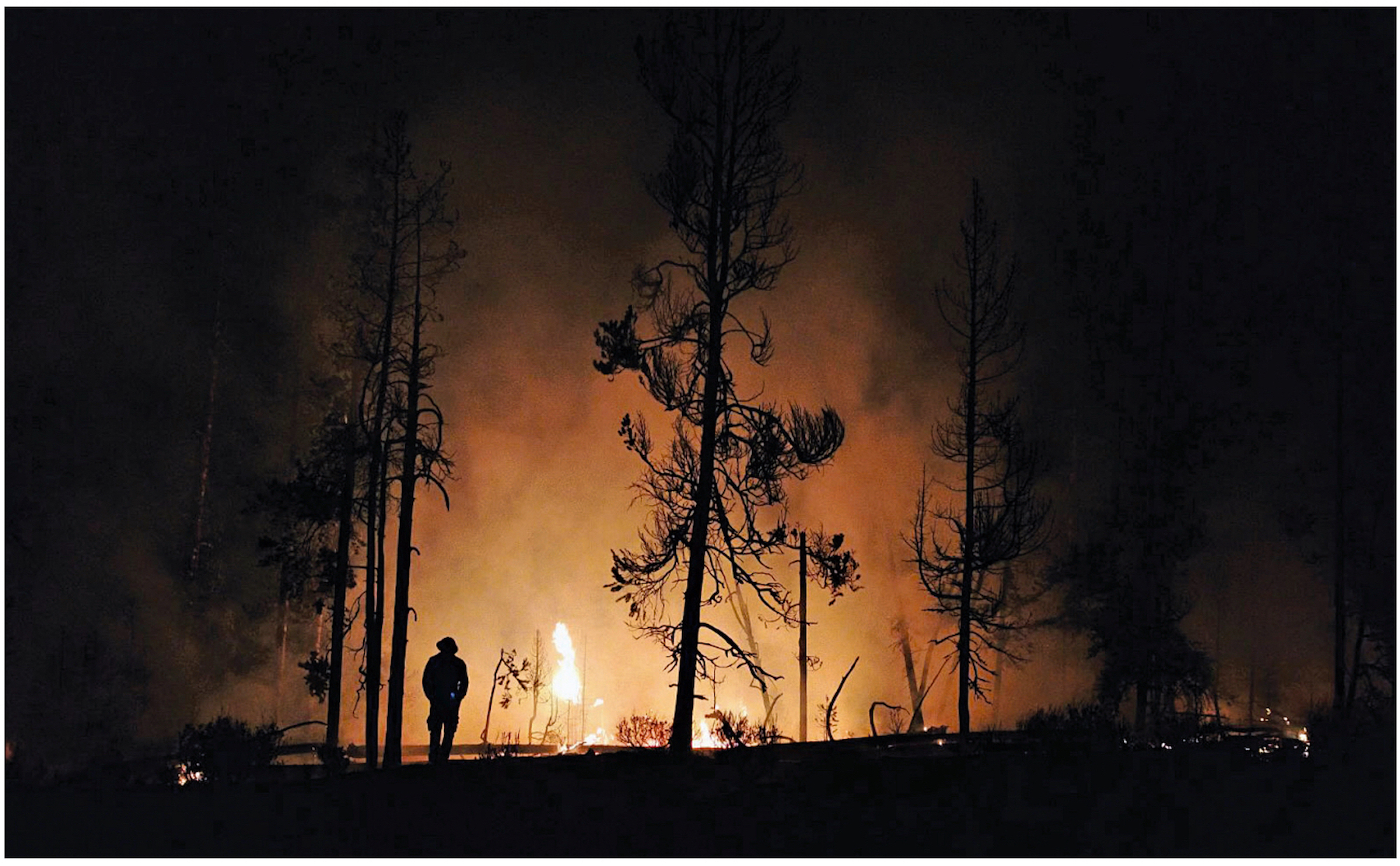
By Ivy Secrest
Wyoming Tribune Eagle
Via- Wyoming News Exchange
CHEYENNE — As the 2025 legislative session approaches, wildland firefighters are considering how they will advocate for their interests as bills concerning fire safety come before state lawmakers.
“We just need to educate our legislators,” Wyoming Fire Advisory Board President Shad Cooper said Thursday.
During the Wyoming Rural Fire Association and Wyoming Fire Chiefs Association joint meeting, Cooper took the groups’ input on the bills set to face the Legislature.
Following one of the most active fire seasons Wyoming has seen in decades, Gov. Mark Gordon included wildfire concerns in his supplemental budget requests. In line with that priority, Cooper and the Wyoming Fire Advisory Board decided to make recuperating funds lost to this year’s fire season a priority.
“There’s going to be some opposition in this upcoming legislative session,” Cooper said Thursday. “What I want to do is make (refilling funds) our priority as a body. We need to go down (to Cheyenne) and actively lobby … for making the accounts whole again to prepare for the next fire season.”
While the Wyoming State Forestry can’t lobby for a bill, State Forester Kelly Norris did address needing the counties’ input before talking to legislators and answering questions like “What does State Forestry need?” and “How can we help?”
“We’re realizing our legislators don’t know about fire,” Norris said. “They don’t know about timber. They’ve never been on a timber sale before. These are all things we have to do now to help them understand what we need in the future.”
While there is still time for bills to be proposed before the legislative session begins, the association already had several issues to consider, including building codes, protecting utility companies from wildfire liability, forest health and school security.
Utilities protection
The association voted to seek an amendment on a draft bill, “Public utilities- wildfire protection plans and liability measure.”
The bill, as it is currently written, is intended to address the rising cost of electricity as utility-sparked wildfires become more common. The bill would ideally incentivize power companies to mitigate the risks of wildfires in exchange for damage claim limits.
“Utility companies are running the bill to reduce their liability; that seems to be the primary concern,” Cooper said. “But then in that bill are some minor mitigation requirements for having fuel reduction.”
If it’s introduced for consideration, the association would seek an amendment requiring strong mitigation actions, as opposed to minor ones, from power companies prior to allowing them to receive the benefits of limitations on damage claims.
The draft bill had previously come before the Joint Minerals, Business and Economic Development Committee, but the committee tabled the bill, meaning it will not go to the session with a committee sponsorship.
The bill could still appear in the session if it receives individual sponsors, however.
Wildfire property tax exemptions
The association voted to seek an amendment on another draft bill that would provide property tax exemptions for landowners who were affected by wildfires in the past year.
“Not only are we losing money to provide suppression responsibility and all the costs associated with that. Now we’re also going to lose tax revenue as a result of that,” Cooper said Thursday. “… The concern is the impact to our ability to provide fire protection services by reducing taxation.”
The firefighting community would be lobbying for an amendment to backfill local taxes for fire response capability, ensuring that the tax exemptions don’t limit its ability to provide services.
Single stair exits
The association voted to strongly oppose a draft bill that would force counties, cities and towns to allow single exits in specified multi-family dwellings, particularly multi-family units under six stories.
“There’s a push, a nationwide push, to basically take away the code enforcement authority of the State Fire Marshal or local jurisdiction,” Cooper said.
One community member explained to the association that there are already processes in place to get a building like this approved, but this bill takes away a major safety precaution that would be essential in the event of an evacuation.
Proponents of these types of bills say it will allow developers to fit more units into smaller lots. However, there are safety concerns, as witnessed in this week’s discussion.
Forest health
The association voted to support a draft bill titled “Forest health grant program-3,” which would create a grant program through the Wyoming State Forestry Division. Grants from this program could be used to fund 75% of a forest health project, which would reduce hazardous fuels, limit the risk of wildfires or benefit the forest’s health in a number of other ways.
“This is going to be to help us reduce hazard fuels in our counties and at a local level,” Cooper said. “I think it’s important to give additional funding, additional authority to the State Forestry Division, to help us to take steps and actively manage the risk of wildland fire.”
Norris did briefly introduce the bill to the association during her update speech.
“This is a cost-share opportunity to deal with fuels. It’s using state funds to do that,” Norris told the group.
If passed, the bill would give the State Forestry $3 million from the general fund to support forest health projects.

